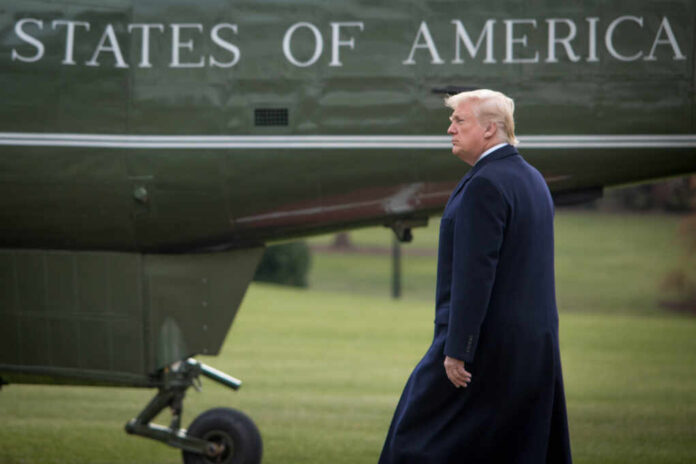
In a key ruling handed down on Wednesday, the Michigan Supreme Court upheld the right of President Donald Trump to remain on the state’s 2024 presidential primary ballot. The decision stands in direct opposition to last week’s controversial decision by the Colorado Supreme Court to rely on a claim under the 14th Amendment to the U.S. Constitution to order that President Trump must be removed from that state’s ballots.
The Michigan high court issued its decision in a case brought by a Democrat-funded group likewise claiming President Trump should be barred from running again for president because of the 14th Amendment’s “insurrection clause.” That provision was enacted shortly after the end of the Civil War to address the circumstances under which former officers of the Confederacy could be prohibited from holding specific future federal government positions.
🚨 Donald Trump responds to the Michigan Supreme Court’s ruling rejecting the attempt to throw him off of the ballot pic.twitter.com/TdAbFfUojn
— Benny Johnson (@bennyjohnson) December 27, 2023
The Michigan Supreme Court’s decision, notably issued by a court dominated by Democrats, chose not to review the lower court’s ruling, which found that the Michigan Secretary of State lacked the authority to remove Trump from the ballot. This reaffirms the principle that major parties have the right to determine their candidates, irrespective of perceived eligibility issues.
Former President Trump lauded the Michigan Supreme Court’s decision in a post on X, formerly known as Twitter, stating, “The Michigan Supreme Court has strongly and rightfully denied the Desperate Democrat attempt to take the leading Candidate in the 2024 Presidential Election, me, off the ballot in the Great State of Michigan.” He further criticized the efforts to remove him from the ballot as a ploy to “rig the Election,” which he claims has failed across the country, with Colorado being the only state to succumb to such tactics.
🚨 BREAKING: Michigan Supreme Court rejects attempt to keep Donald Trump off ballot
— Benny Johnson (@bennyjohnson) December 27, 2023
In the only dissent from the majority’s opinion, Justice Elizabeth Welch spoke to what she considered the “gravity of the legal questions involved” and the possibility that the issue could re-emerge for the general election if Trump becomes the Republican nominee.
The legal skirmishes over Trump’s eligibility to run for office have become a nationwide phenomenon, with lawsuits filed in several states, including Oregon, New Jersey, and Wisconsin, as well as in federal district courts across the country. These cases are centered around the interpretation of the 14th Amendment and its application to presidential candidates.
Liberal-leaning nonprofit Free Speech for People, which filed the Michigan lawsuit, expressed disappointment with the ruling. Ron Fein, the organization’s legal director, stated, “The ruling conflicts with longstanding U.S. Supreme Court precedent.” However, he acknowledged that the decision is not binding outside Michigan and vowed to continue legal actions in other states to enforce the 14th Amendment against Trump.
Most legal experts now believe the various state disputes about President Trump’s right to appear on presidential election ballots is destined for the U.S. Supreme Court in the near future. In that the cases all involve the 14th Amendment and have produced inconsistent results, a uniform, and controlling decision is needed to bring clarity to the matter of the right of every American citizen to make the political choice of voting for the candidate of their choice to represent them in Washington.













